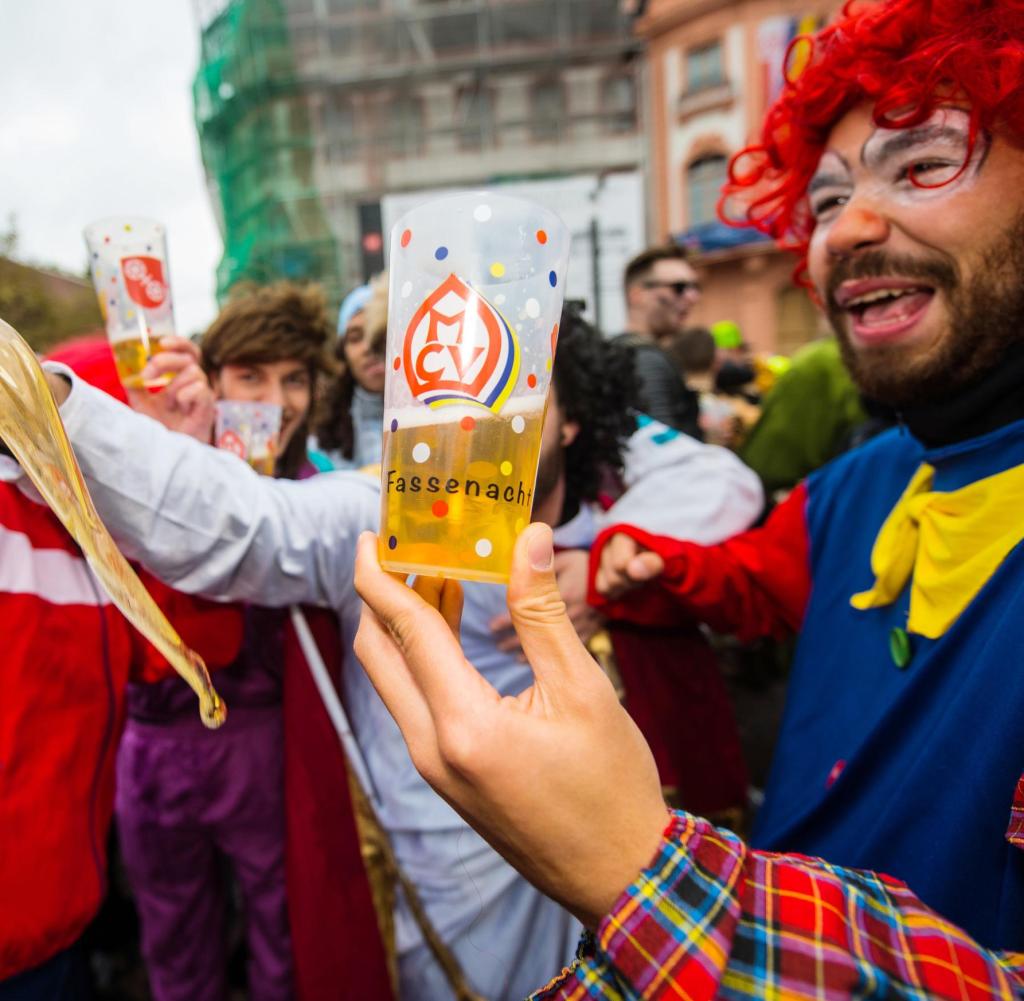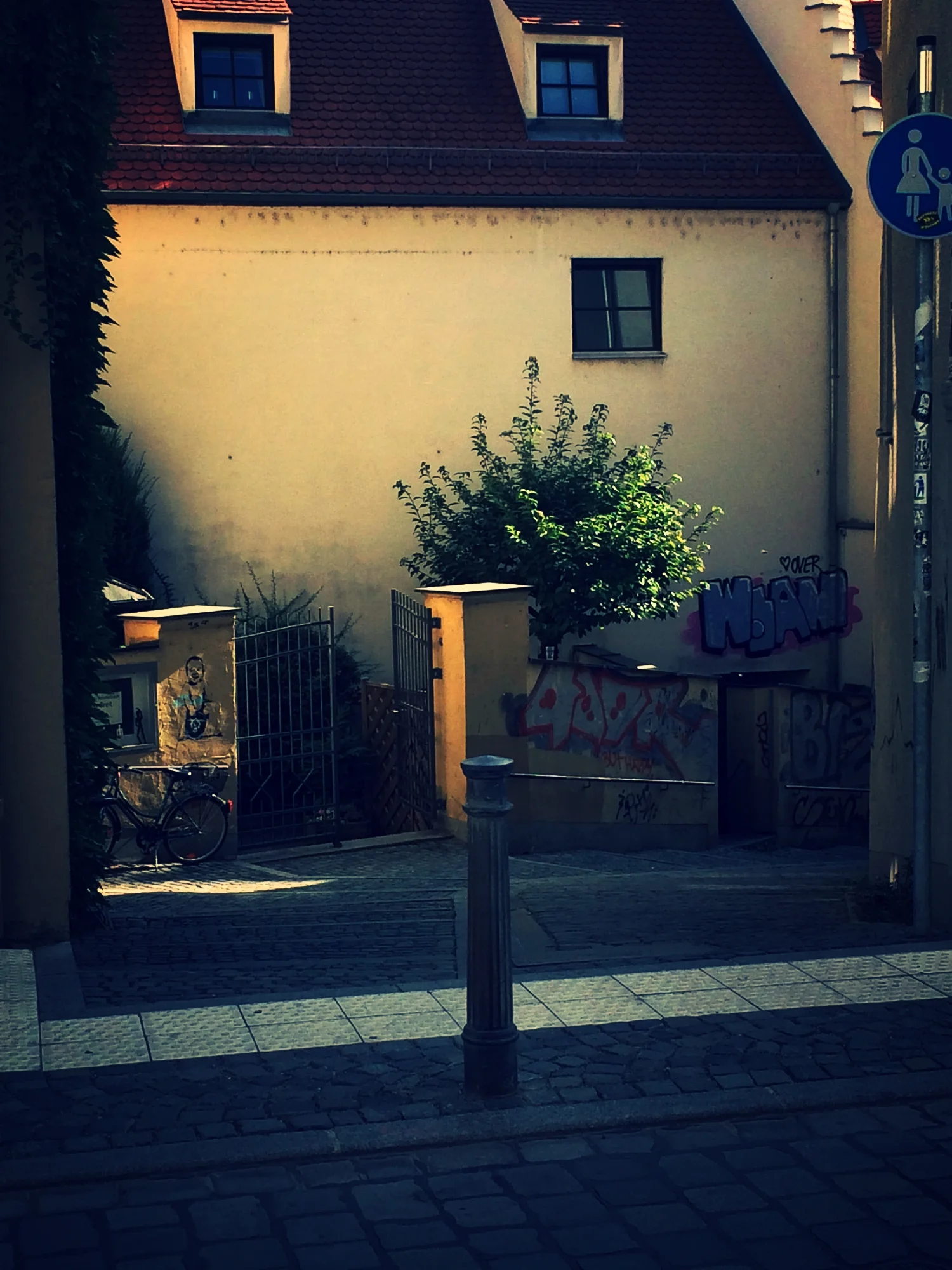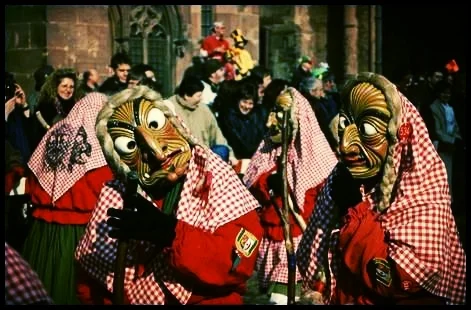Fasching Victim: Carnival in Germany
Surveying the scene, I have difficulty processing exactly what I'm seeing. To the left of me, milling around in a crowd, are what appear to be a large group of pandas. While one lights a cigarette, another expertly opens a bottle of beer with a disposable lighter. On the right, standing quietly, is a clone trooper, at least that's what the mask looks like. Across the street, a native American is hugging the 'Karate Kid' and pointing at the group of ninja turtles doing shots at a makeshift bar. While all this is happening, witches parade passed us, dividing their time between scaring small children, throwing sweets to the crowd and kidnapping women to be put in a cage that is being towed behind them. Although it might sound suspiciously like The Wickerman, what I was actually witnessing was one of Germany’s numerous carnival events in full swing. Like much of what happens in Germany, Carnival is serious business.
Fastnacht, Fasching or Karnevalare some of the names given to series of events held every year in the week before the beginning of lent. Like similar events held around the world, most famously in New Orleans, Carnival is celebrated with outlandish costumes, parades and a serious amount of drinking. Carnival has a number of potential origins, with the German version being mentioned by Roman senator and historian Tacitus in the first century. Essentially carnival evolved from a pagan festival celebrating the end of winter, into a Christian pre-Easter celebration. Although it may have changed over the centuries, there are still examples of traditions that date back to Carnivals from the middle ages. It is still popular in some areas of Germany for the local government to be temporarily deposed for a day, while fools take over the administration, an act which was a mainstay of the role reversals celebrated in Europe during the middle ages.
Although there are these older origins, the modern Fasching actually has more recent connections. The Rhineland, namely Cologne has become the official city of Carnival since they revived the idea in 1823, possibly as a way to make fun of their French occupiers and even the Prussians without fears of reprisal. This was also the year that the Cologne Carnival Club was formed, an act which spawned many imitators, to the point that nearly every village in Germany has some connection to an official Carnival Club. The members of the club or responsible for organising events during the week of Carnival, with the week beginning on Weiberfastnacht the Thursday before Ash Wednesday and culminating in Rosenmontag (Rose Monday) when the majority of parades are held around the country.
Cologne being the first city to found a club, as well as hosting the largest parade, it has become the arbiter of Fasching and is joined by Düsseldorf and Mainz in a triumvirate of Fasching. For these cities, Fasching is the “Fifth Season”, which sees the cities effectively shut down to accommodate the vast numbers of people who wish to celebrate. If you have business or people you might need to contact based in Cologne, you will be lucky to hear anything from them until the end of the holiday. Even then, they will be nursing the king of hangovers. Although I’ve never been to it, it must be interesting to see an entire city recovering from a collective hangover. The fact they do this without the support of a bacon sandwich or even the re-energising powers of Irn-Bru is all the more epic.
Obviously the size and scale of such an event could cause problems, but Cologne has managed to find a simple way round this problem. The Carnival period actually begins in November (11th day, 11th month, at exactly 11.11am) and stretches all the way into the following year. Granted most of the festivities are in the week before lent. Fasching coincides with half-term holidays and in cities like Cologne, Rosenmontag is an official public holiday.
The parade itself can range in scale, but will include a number of typical sights. There is usually more than one group of Hexe or witches who will either give out sweets or small bottles of schnapps (depending on age), the more terrifying witches will snatch women from the crowd and put them in cages or possibly spin them around in a specially designed barrel. The costumes of the witches may also differ in quality, but the masks that are worn can date back generations and be made from massive pieces of wood. Being part of the Hexe Fasching club can be a family tradition, passed down, with the traditional mask being held within families. It is not inconceivable that groups have masks that date from Fasching parties held in the nineteenth century.
The parade aside there are also the Karnevalssitzung, which is an umbrella term for the different events during Carnival. These events can be small scale or, in the case of Cologne, massive events held in stadiums. There can be a theme, decided on in advance by the sitting Carnival council, headed by a President. Earlier events will sometimes choose a Carnival Prince or Carnival Royal couple who will be the figureheads of the Carnival. Later events may be organised into a Prunksitzung, a public meeting of Carnival hosts, guests and performers. These revues are televised, with musicians, comedians and dancers taking part in the show. Watching one of these shows live can be a surreal experience, with satirical jokes on the years events played out within the confines of an old-timey music hall event.
The highlight of these shows is the Gardetanz, a German equivalent of the Can-Can dancers seen in French cabaret. Watching one of theses groups perform is a visual barrage, with women in polyester outfits dancing in formation. Sometimes it will be to traditional songs, but searching the internet it is easy to find videos of these groups performing to Beyonce or the Benga Boys. Nothing celebrates the arrival of a religious festival like dancing to ‘The Benga Bus is Coming’. Perhaps this is why drinking is such an important part of events, if you are half drunk you are less likely to ask difficult questions about the decision of a group of formation dancers to dance to AC/DC’s TNT.
Carnival is not just a German concept either, all around Europe there are similar events in a variety of different guises. The UK is in the minority, as it doesn’t really celebrate Carnival in any way, with many people not even realising that it exists. The UK instead celebrates ‘Shrove Tuesday’ or ‘Pancake Day’ on the Tuesday before Ash Wednesday, a day that is supposed to be about self reflection but is more commonly remembered for the copious amounts of pancakes ingested in 24 hours. It is interesting to think that an event intended to celebrate role reversal, sees British people simply making some pancakes and Germans dressing in all manner of costumes and drinking themselves into oblivion. Perhaps it is better that the UK doesn’t celebrate carnival, given that the British manage to pack in a weeks worth of costumes, alcohol and dancing into the average Saturday night. Dedicating a whole week to such frivolities might have seen the island go extinct decades ago.
The fact that Germany is still celebrating a festival such as Fasching and continues the centuries old traditions of role reversal and madness is perhaps the secret to their success. By limiting themselves to one week of madness means that German workers can get all the fury out in one go, instead of distributing it out over the whole year. They might have the reputation of a land of process, hard work and efficiency, but it is funny to think that they put a similar amount of effort into Carnival as they do filing requirement specifications and software development.








